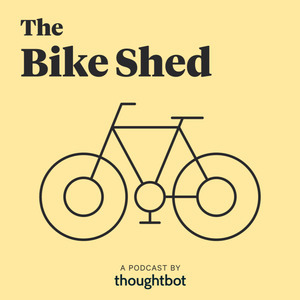442: Paradigms - What is a Program?
Episode 442 · October 1st, 2024 · 42 mins 22 secs
About this Episode
What is a program? Your answer to this question will determine the paradigm through which you view programming. During this episode, you’ll come to understand how things change once you develop an awareness of your paradigm, and what. To kick off this episode, Stephanie shares key insights she took from Planet Argon’s 2024 Ruby on Rails survey and dives deeper into her history with Ruby on Rails. Next, we dive into the definition of a paradigm and unpack three different paradigms you might hold as a developer: procedural, object-oriented, and functional. Considering how each of these impacts the way that you might approach your work as a developer, and what you can learn from the ones that are less familiar to you. Joël describes his scripting style and evaluates the concept of pure functions and their place in development, and we close by digging deeper into how your paradigm might impact the code that you write. Tune in to hear all this and more.
Key Points From This Episode:
The EPI feature that Joël has started to build out for his client.
Why Stephanie is excited about the results of Planet Argon’s 2024 Ruby on Rails community survey.
What a procedural program is: programming envisions a program as a series of instructions to a computer.
Defining an object-oriented paradigm: programming envisions a program as the behavior that emerges from objects talking to each other.
How a functional paradigm envisions a program as a series of data transformations.
Alan Turing and Alonzo Church’s approach to understanding this.
How a lot of the foundations of computer science came to be built before we had computers.
Using Ruby to make judgments and assessing whether or not this is a procedural habit.
Why Joël describes his scripting style as being very procedural.
Unpacking the meaning of functional programming.
Evaluating the concept of pure functions.
Considering how your paradigm may impact the Ruby code that you write.
Links Mentioned in Today’s Episode:
2024 Ruby on Rails Community Survey
Church-Turing Thesis
Dynamic type systems are not inherently more open
What is Functional Programming?
Blocks as an abstraction vs for loops
Functional core imperative shell
Testing objects with a functional mindset
The Bike Shed
Joël Quenneville on LinkedIn
Support The Bike Shed
